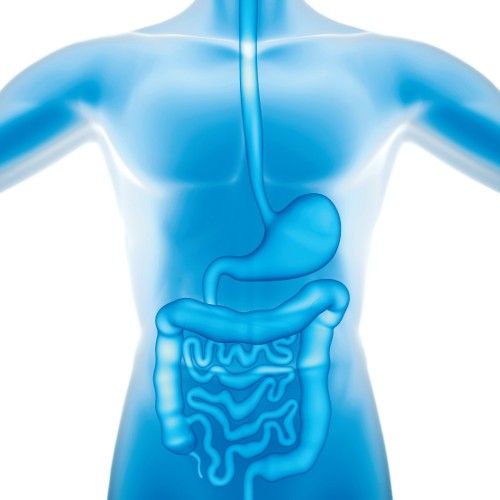EpiCor Yeast Fermentate Ingredient Improves Constipation Symptoms in New Study
The results from the pilot trial indicated that EpiCor may provide gastrointestinal benefits for those experiencing constipation and gastrointestinal discomfort.
Photo © iStockphoto.com/iLexx

A new study,1 published in BMC Complementary and Alternative Medicine, suggests that EpiCor, a yeast fermentate ingredient, may provide gut health benefits relating to gastrointestinal comfort. Embria Health Sciences LLC (Ankeny, IA) says that its immune-health ingredient EpiCor helps balance the gut microbiome and reduces the bloating and gas that often accompany prebiotic fiber products.
In the study, researchers examined EpiCor’s ability to reduce symptoms of gastrointestinal discomfort in a population of otherwise healthy adults; the secondary aim was to determine the effect of EpiCor on the gut microbial composition. The results from the pilot trial indicated that EpiCor may provide gastrointestinal benefits for those experiencing constipation and gastrointestinal discomfort.
The study authors note that constipation, a symptom-based gastrointestinal disorder, is relatively prevalent among the general population, with a rate of occurrence between 5% and 20%. In 2012, they write, roughly 3.2 million visits were made to medical centers concerning constipation symptoms. They also point out that while the efficacy of pro-and prebiotics for improving symptoms of constipation has been recently reviewed, the data from previous trials is not strong enough “to recommend probiotics for functional constipation.” The aim of this study, then, was to determine whether an immune-modulating ingredient, EpiCor, which is neither a pro- or prebiotic, but is said to possess immune-modulating properties, might prove more efficacious in regulating bowel movements and constipation.
In total, 80 subjects between the ages of 18 and 70 participated in the randomized, double-blind, placebo-controlled trial. All participants reported experiencing reduced bowel movements (moderate to severe constipation) or other symptoms of gastrointestinal discomfort. The study took place from July 2015 to January 2016, with a two-week run-in period and a six-week intervention phase. During this time, the participants were supplemented with either 500 mg/day EpiCor or the equivalent dose of a placebo. In addition, the subjects were instructed to complete a daily questionnaire documenting stool frequency and consistency. The data was recorded using the Bristol Stool Form Scale. They were also asked to grade, on a five-point scale, the following GI symptoms: bloating/distention, passage of gas, GI rumbling, feeling of fullness, and abdominal discomfort. Researchers measured subjects’ quality of life using the Patient Assessment of Constipation Quality of Life (PAC-QOL) and recorded subjects’ stress levels using the Perceived Stress Scale (PSS) questionnaire. To assess changes in the subjects’ gut microbiota, the study authors collected fecal samples once at the initial visit, and then at 3 and 6 weeks post-intervention.
After analyzing the data from subjects’ questionnaires, the study authors found that EpiCor demonstrated several positive effects, including a significant effect on bloating and distension, feeling of fullness, and general discomfort, though they note that there may have been some placebo effect. Regardless, the group given EpiCor did exhibit near-significant improvements in stool frequency and a significant improvement in stool consistency, compared with the placebo group.
Regarding the subjects’ quality of life and levels of stress, the group given EpiCor recorded decreases in stress, physical discomfort, psychosocial discomfort, and improved levels of satisfaction, compared with the placebo group. While the differences between the EpiCor and placebo group “did not reach significance,” with regard to psychosocial discomfort and improved levels of satisfaction, “there is a clear tendency for improvement” in the EpiCor group, they said. This tendency was more apparent in the subjects’ reported stress levels, for which the EpiCor group demonstrated “nearly significant” improvement over the placebo group.
Finally, the researchers observed changes in the subjects’ gut microbial composition. “Specifically, members of the families Bacteroidaceae and Prevotellaceae, two groups of bacteria that have been previously reported to be deficient in constipated patients, were found to increase with EpiCor in the severe constipation subgroup. In the moderate subgroup, researchers observed a significant increase in Akkermansia muciniphila, a potentially beneficial species,” the company explains via press release.
EipCor increased subjects’ bowel movements, thus, the composition of the gut microbial community was altered, if indirectly. The researchers concluded that the improvements observed in the group supplemented with EpiCor, while relatively modest, suggest EpiCor’s potential gastrointestinal benefits.
Massimo Marzorati, PhD, and cofounder of ProDigest, the contract research organization that conducted the trial, commented on the study results in a press release: “The positive results with EpiCor in this study are very encouraging since an ingredient of this kind has never been evaluated for its role in gut microbiota shifts and effects on common constipation-associated symptoms,” he said. “It’s a remarkable finding to see compelling prebiotic effects in a human study at a dose of only 500 mg/ day.”
“This could be a real breakthrough for millions of consumers looking for advanced solutions to remedy gut discomfort and manage occasional constipation outside of probiotics and prebiotic fibers,” added Larry Robinson, PhD, vice president of scientific affairs, Embria, in the press release.
Per Embria, EpiCor is an all-natural, whole-food fermentate formulated through the company’s proprietary fermentation process. In addition, it says, EpiCor is self-affirmed Generally Recognized as Safe (GRAS), with a New Dietary Ingredient Notification (NDI) currently on file with the FDA.
References:
- Pinheiro I et al., “A yeast fermentate improves gastrointestinal discomfort and constipation by modulation of the gut microbiome: results from a randomized double-blind placebo-controlled pilot trial,” BMC Complementary and Alternative Medicine, vol. 17, no. 1 (September 2017): 441








